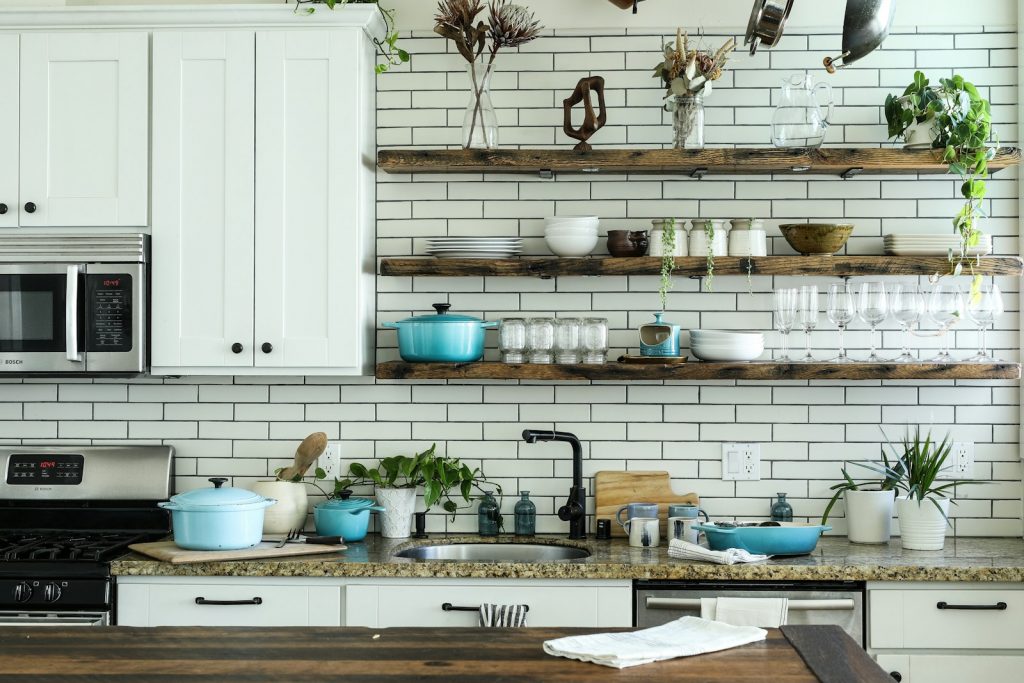How can you achieve zero waste dishwashing for a truly sustainable kitchen?
Zero waste dishwashing is all about minimizing plastic, reducing harmful chemicals, and cutting down on unnecessary waste while keeping your dishes sparkling clean. By making mindful choices—like swapping out single-use sponges for compostable alternatives, using solid or refillable dish soaps, and conserving water—you can transform your daily dishwashing routine into an eco friendly, sustainable practice. This approach not only benefits the environment but also saves money and supports a healthier home.[1][2][3][4]
Whether you hand wash or use a dishwasher, there are plenty of practical, zero waste solutions that make it easy to ditch disposables and embrace greener habits. Read on for the best products, strategies, and answers to your top questions about plastic free dishwashing.
5 Essential Entities for Zero Waste Dishwashing
- Solid Dish Soap: A concentrated, package-free alternative to liquid dish soap, often sold in bars or blocks. It lasts longer and eliminates the need for plastic bottles.[1][4][8]
- Biodegradable Sponges and Brushes: Made from natural materials like cellulose, coconut fibers, or loofah, these tools are compostable and replace synthetic, landfill-bound sponges.[1][2][3][4]
- Reusable Kitchen Towels: Cloth towels made from cotton or bamboo replace paper towels for drying dishes and wiping surfaces, drastically reducing single-use waste.[1][5]
- Eco Friendly Dish Soap: Dish soap that is non-toxic, biodegradable, and often available in zero waste formats like powder, bars, or bulk refills.[6][7][8]
- Water Conservation Techniques: Methods like using a dishpan, soaking, and batch rinsing help save water during both hand washing and machine dishwashing.[3]
Top 10 Questions About Zero Waste Dishwashing
- What is zero waste dishwashing?
Zero waste dishwashing is the practice of cleaning dishes using methods and products that produce little to no landfill waste, minimize plastic use, and reduce environmental impact.[1][3][4] - What are the best zero waste dish soap options?
Solid dish soaps, powdered dish soaps, and liquid soaps in refillable or compostable packaging are top choices. Look for brands that use natural, biodegradable ingredients and avoid plastic bottles.[1][6][8] - Can I make my own sustainable dish soap?
Yes! You can make DIY dish soap using ingredients like castile soap, baking soda, and essential oils. Homemade recipes can be tailored to your cleaning needs and stored in reusable containers.[5][8] - Are biodegradable sponges and brushes as effective as traditional ones?
Absolutely. Natural sponges, wooden brushes, and loofahs clean just as well as synthetic sponges and are compostable at the end of their life.[1][2][3][4] - How can I reduce water waste while washing dishes?
Use a dishpan to soak and rinse dishes in batches, avoid letting the faucet run continuously, and scrape food off plates before washing to minimize the need for excess water.[3] - Is hand washing or using a dishwasher more eco friendly?
Modern dishwashers are often more water- and energy-efficient than hand washing, especially when run with full loads and eco settings. If you hand wash, batch your dishes and use minimal water.[3][7] - What are plastic free alternatives to dish soap bottles?
Solid dish soap bars, dish soap powders, and liquid soaps from refill stations or in glass bottles are excellent plastic free choices.[1][4][8] - How do I dry dishes without paper towels?
Use reusable kitchen towels made from cotton or bamboo, or air dry dishes on a rack. These methods eliminate single-use paper waste.[1][5] - What’s the best way to clean tough pots and pans sustainably?
Use copper or coconut fiber scrubbers, tampico fiber brushes, or a coconut shell pan scraper. These tools are tough on grime but gentle on cookware and fully compostable.[4] - Where can I find zero waste dishwashing products?
Many zero waste stores and online retailers offer solid dish soaps, compostable sponges, wooden brushes, and refillable dish soap options. You can also check local bulk stores for package-free alternatives.[1][4][6]
Zero Waste Dishwashing: Tools, Soaps, and Best Practices
Making the switch to zero waste dishwashing is easier than ever thanks to a growing range of eco friendly products and simple habits. Here’s how to build your sustainable dishwashing routine:
- Switch to Solid or Refillable Dish Soap:
Solid dish soap bars are a game-changer for plastic free dishwashing. Simply rub your wet brush or sponge on the bar to create suds. For those who prefer liquid, look for refill stations or bulk options in your community.[1][4][8] - Choose Compostable Sponges and Brushes:
Traditional sponges are made from synthetic materials that never break down. Instead, use sponges made from cellulose, loofah, or coconut fibers, and brushes with wooden handles and natural bristles.[1][2][3][4] - Use Reusable Kitchen Towels:
Replace single-use paper towels with washable, absorbent cloths. These can be used for drying dishes, wiping counters, and cleaning up spills.[1][5] - Practice Water Conservation:
Soak dishes before scrubbing, use a dishpan for rinsing, and only run the dishwasher when full. These habits save water and energy.[3][7] - Air Dry Dishes:
Instead of disposable towels, let dishes air dry in a rack or use a clean, reusable towel.[3]
Popular Zero Waste Dish Soap Alternatives
- Solid Dish Soap Bars: Long-lasting, package-free, and easy to use. Just rub your brush or sponge on the bar and wash as usual.[1][4][8]
- Powdered Dish Soap: Mix with water to create a liquid soap or use directly for scrubbing. Often sold in compostable or recyclable packaging.[8]
- Refillable Liquid Soap: Bring your own container to a refill shop and fill up on eco friendly dish soap, cutting out single-use plastic.[6]
- DIY Dish Soap: Make your own with castile soap, baking soda, and essential oils for a customized, non-toxic solution.[5][8]
Tips for a Zero Waste Dishwashing Routine
- Scrape food scraps into the compost before washing.
- Soak tough pans to loosen grime and reduce scrubbing.
- Batch wash dishes to save water and energy.
- Rotate and sanitize sponges and brushes regularly to extend their life.
- Compost used sponges and towels at the end of their life cycle.
- Choose packaging-free or recyclable packaging whenever possible.
Conclusion
Zero waste dishwashing is a practical and rewarding way to reduce your kitchen’s environmental impact. By choosing sustainable dish soap, compostable tools, and water-saving habits, you’ll create a cleaner home and a healthier planet. Every small change—whether it’s switching to a solid soap bar or using a bamboo dish brush—adds up to significant waste reduction over time. For more tips on building a greener kitchen, check out our Ultimate Guide to an Eco-Friendly Kitchen and discover 15 Easy Eco-Friendly Kitchen Swaps to get started on your zero waste journey.
Related Articles
- The Ultimate Guide to an Eco-Friendly Kitchen (for Beginners & Families)
- 15 Easy Eco-Friendly Kitchen Swaps to Reduce Waste Today
- A Beginner’s Guide to Composting Kitchen Scraps (Even in Small Spaces)
- Smart Meal Planning: How to Stop Food Waste in Your Kitchen
- DIY Reusable Food Wraps: A Simple Eco Kitchen Project
- Top 10 Must-Have Eco Kitchen Products for a Greener Home
- The Best Earth-Friendly Dishwasher Detergents We’ve Tested
- Choosing Eco-Friendly Pots and Pans: A Buyer’s Guide
- Sustainable Kitchen Countertops: Pros, Cons & Eco-Friendly Options
- 10 Simple Ways to Save Energy in Your Eco-Friendly Kitchen
- How to Conserve Water in the Kitchen: Practical Tips for Families
- DIY Natural Kitchen Cleaners: Effective & Eco-Friendly Recipes
Sources
- Zero Waste Dishwashing : 4 ecological products for your kitchen
- How to Do Zero Waste Dishwashing | Beat Plastic Pollution
- 8 Zero Waste Dishwashing Tips That Saves Your Money – Ecotero
- Zero Waste Dishwashing: A Healthier Way to Clean Naturally
- A Quick & Easy Guide To A Zero Waste Kitchen – LastObject
- How to make the washing up a bit more eco-friendly | Party Kit Network
- Guide To Eco Friendly Dishwashing – Going Zero Waste
- 15 Zero Waste Dish Soap Options For Sparkling Dishes


